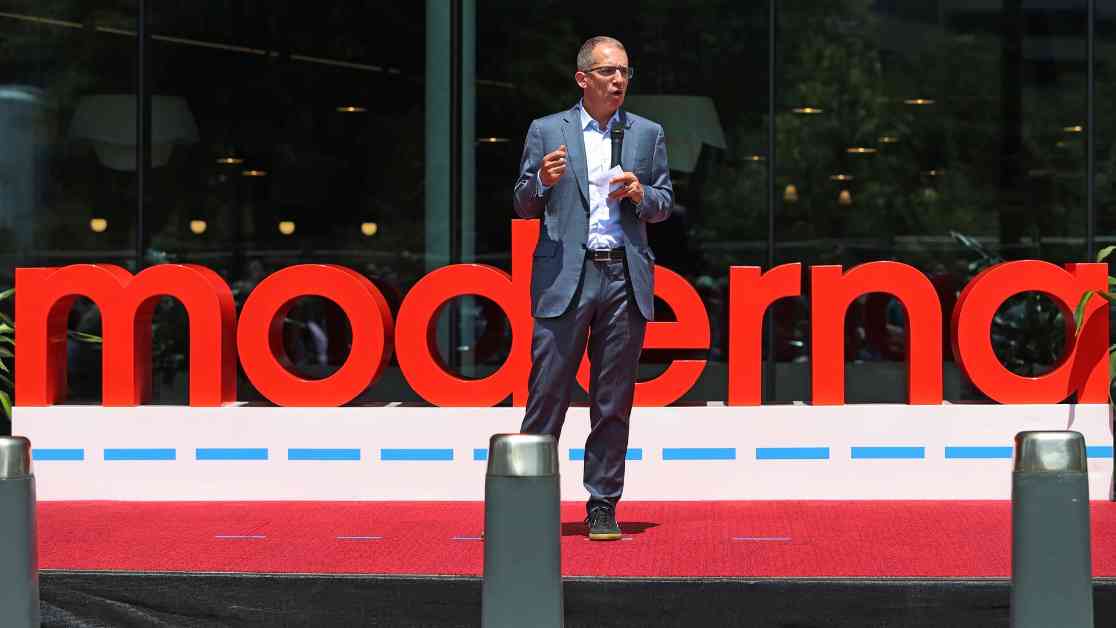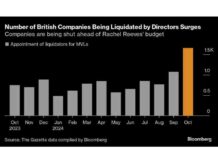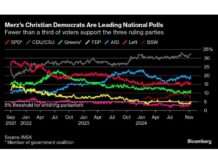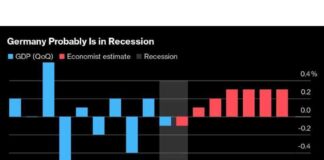Moderna, a leading biotech company headquartered in Cambridge, Massachusetts, has recently made significant announcements regarding cost-cutting measures and new product launches. The company revealed plans to reduce expenses by $1.1 billion by 2027, along with the expectation of obtaining approvals for 10 new products within the same timeframe. However, Moderna also disclosed its intention to pause work on certain products in its pipeline and discontinue others to manage research and development spending more effectively.
Cost-Cutting Measures and Financial Position
Moderna’s CEO, Stephane Bancel, stated that the company will be scaling back its research and development spending to a range of $3.6 billion to $3.8 billion by 2027, a decrease from the projected $4.8 billion for the current year. This decision comes as Moderna aims to streamline its operations and focus on more promising products in its portfolio. Despite these efforts, the company’s stock experienced a sharp decline of over 15% following the announcements.
Analysts’ Perspectives
Leerink Partners analyst, Mani Foroohar, expressed concerns about Moderna’s financial outlook, noting that the updates have challenged key aspects of the company’s stock valuation. He questioned the credibility of the projected R&D reductions, citing Moderna’s history of unpredictability in business performance. Similarly, Jefferies analyst Michael Yee highlighted that the bulk of the cost savings may not be realized until 2027, delaying the company’s path to profitability until 2028.
Revenue Projections and Growth Expectations
Moderna aims to achieve breakeven on an operating cash cost basis with $6 billion in revenue by 2028, a target that has been postponed from the previously anticipated timeline of 2026. The company forecasts revenue of $2.5 billion to $3.5 billion for 2025, with a compounded annual growth rate of over 25% expected from 2026 to 2028 as new products are introduced to the market. Despite the setbacks in the short term, Moderna remains optimistic about its long-term growth potential.
New Product Launches and Vaccine Developments
In a bid to diversify its product portfolio, Moderna announced positive late-stage trial results for its vaccine targeting respiratory syncytial virus (RSV) in high-risk adults aged 18 to 59. The company also revealed promising data on its experimental standalone flu shot for individuals aged 65 and older. These developments were unveiled during Moderna’s annual research and development day event in New York, showcasing the company’s commitment to innovation and addressing unmet medical needs.
Pipeline Expansion and Future Prospects
Moderna’s pipeline includes a range of products targeting various diseases, including cancer, latent viruses, and rare conditions. The company anticipates the approval of five non-respiratory products by 2027, further bolstering its position in the biopharmaceutical industry. With a focus on continuous research and development, Moderna aims to introduce groundbreaking treatments that could revolutionize healthcare in the coming years.
RSV Vaccine and Flu Shot Advancements
Moderna’s RSV vaccine, mRESVIA, has shown promising efficacy in ongoing phase three studies for adults at higher risk of severe illness from the virus. The company plans to seek approval for this age group using a priority review voucher to expedite the regulatory process. Additionally, the experimental flu vaccine, mRNA-1010, demonstrated superior immune response compared to existing options in recent trials, positioning it as a potential breakthrough in flu prevention.
Norovirus Vaccine Development and Cancer Vaccine Collaboration
Moderna is moving forward with its norovirus vaccine, targeting a phase three trial to address the highly contagious stomach bug. The company aims to accelerate the development of this vaccine to meet urgent healthcare needs and provide a solution for healthcare professionals at risk of infection. Furthermore, Moderna’s collaboration with Merck on a personalized cancer vaccine highlights its commitment to advancing innovative therapies for complex diseases, such as deadly skin cancer.
Regulatory Challenges and Accelerated Approval
Despite the progress in vaccine development, Moderna faces regulatory hurdles, particularly with the FDA’s stance on accelerated approval for certain products. The company continues to engage in discussions with regulators to address concerns and provide additional data to support its applications. This ongoing dialogue underscores Moderna’s commitment to compliance and transparency in the drug approval process.
Conclusion
Modern’s strategic initiatives to streamline operations, reduce costs, and launch new products demonstrate its resilience and adaptability in a rapidly evolving healthcare landscape. By focusing on innovation, research, and collaboration, the company aims to position itself as a leader in biopharmaceuticals and deliver impactful solutions to improve patient outcomes worldwide. As Moderna continues to navigate challenges and pursue opportunities, its commitment to advancing healthcare remains unwavering.






















